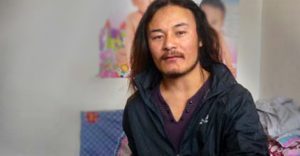| [28 November 2016] Over the past month, two UK-China Dialogues have taken place in London, one on human rights and the other on trade and economics. Unfortunately, the UK placed considerably more significance on the Economic Dialogue, as signified by the presence of the Prime Minister, whilst the Human Rights Dialogue was left to a newly-appointed junior minister.
Prime Minister Theresa May and Chancellor of the Exchequer Philip Hammond were part of the UK-China Economic Dialogue held in London on 10-11 November. Meanwhile, the UK-China Human Rights Dialogue, held on 27-28 October, was led by Parliamentary Under-Secretary for the Foreign Office Alok Sharma. UK-China Economic Dialogue
As well as publicity for the continued ‘special relationship’ between the UK and China, the economic dialogue was expected to secure £5 billion worth of Chinese investment in infrastructure and property schemes across the north of England, as well as progressing on other trade deals pitched by the previous Chancellor George Osborne. UK-China Human Rights Dialogue
In contrast to the Economic Dialogue, there was little in the way of official announcements on the outcome of the Human Rights Dialogue. Only a short statement by Alok Sharma has been issued which gave little away. In the statement, published on the government’s website, Alok Sharma, said, “Senior officials discussed the full range of matters relating to human rights, including on freedom of expression and religion.” He added, “The dialogue was held in a constructive and open manner.” Other than the UK calling for the release of Chinese human rights lawyers and activists following the crackdown in China which began in July 2015, no other specific information about what was raised has been officially released. Nor has there been any detail of any response from the Chinese delegation or any outcomes from the meeting. However, Tibet Society has since been informed by Foreign Office sources that the UK delegation raised the following issues: Larung Gar; the Panchen Lama plus a number of other Tibetan political prisoners; and, diplomatic access to Tibet (there has been no UK diplomatic visit to Tibet since 2009). Tibet Society continues to call on the UK government to publicise its key concerns raised in the Human Rights Dialogue, to make the Dialogue more open and transparent, including the involvement of civil society, and to initiate a process involving benchmarks to ascertain whether progress is being made on human rights in Tibet and China. Further reading:
|
||||
|
|
||||
|
Tibet Society, the world’s first Tibet support group, was founded in 1959. Funded by its members, it has been working for over 50 years to seek justice for Tibet through parliamentary lobbying, campaigns and actions. Help keep Tibet alive by joining Tibet Society today. Annual membership £24; Family £36; Life £500.
|
||||





